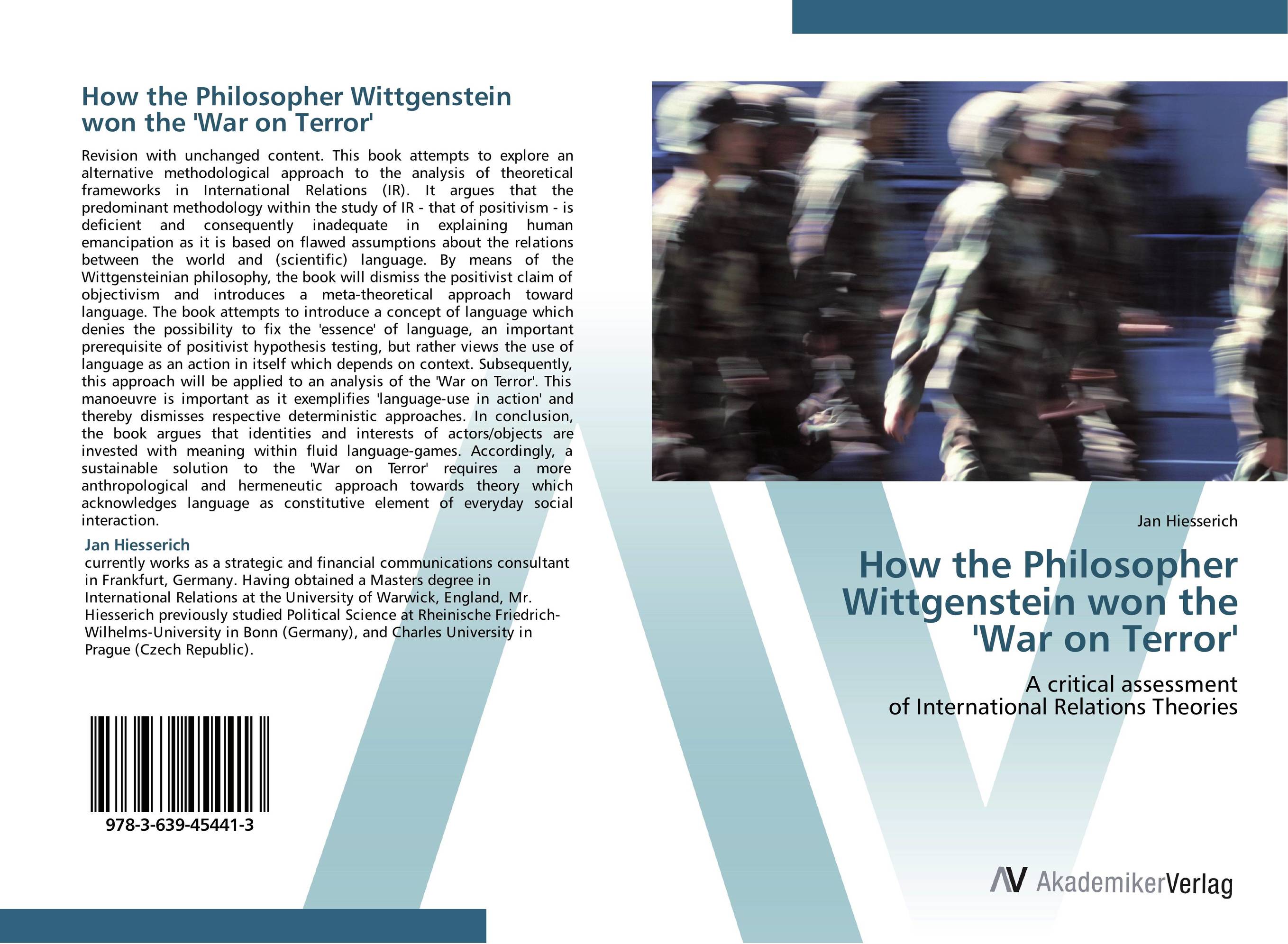| Поиск по каталогу |
|
(строгое соответствие)
|
- Профессиональная
- Научно-популярная
- Художественная
- Публицистика
- Детская
- Искусство
- Хобби, семья, дом
- Спорт
- Путеводители
- Блокноты, тетради, открытки
How the Philosopher Wittgenstein won the 'War on Terror'. A critical assessment of International Relations Theories

В наличии
| Местонахождение: Алматы | Состояние экземпляра: новый |

Бумажная
версия
версия
Автор: Jan Hiesserich
ISBN: 9783639454413
Год издания: 2012
Формат книги: 60×90/16 (145×215 мм)
Количество страниц: 60
Издательство: AV Akademikerverlag
Цена: 29790 тг
Положить в корзину
| Способы доставки в город Алматы * комплектация (срок до отгрузки) не более 2 рабочих дней |
| Самовывоз из города Алматы (пункты самовывоза партнёра CDEK) |
| Курьерская доставка CDEK из города Москва |
| Доставка Почтой России из города Москва |
Аннотация: Revision with unchanged content. This book attempts to explore an alternative methodological approach to the analysis of theoretical frameworks in International Relations (IR). It argues that the predominant methodology within the study of IR - that of positivism - is deficient and consequently inadequate in explaining human emancipation as it is based on flawed assumptions about the relations between the world and (scientific) language. By means of the Wittgensteinian philosophy, the book will dismiss the positivist claim of objectivism and introduces a meta-theoretical approach toward language. The book attempts to introduce a concept of language which denies the possibility to fix the 'essence' of language, an important prerequisite of positivist hypothesis testing, but rather views the use of language as an action in itself which depends on context. Subsequently, this approach will be applied to an analysis of the 'War on Terror'. This manoeuvre is important as it exemplifies 'language-use in action' and thereby dismisses respective deterministic approaches. In conclusion, the book argues that identities and interests of actors/objects are invested with meaning within fluid language-games. Accordingly, a sustainable solution to the 'War on Terror' requires a more anthropological and hermeneutic approach towards theory which acknowledges language as constitutive element of everyday social interaction.
Ключевые слова: Wittgenstein, War on Terror, George Bush, international relations theory, positivism, Kenneth Waltz



